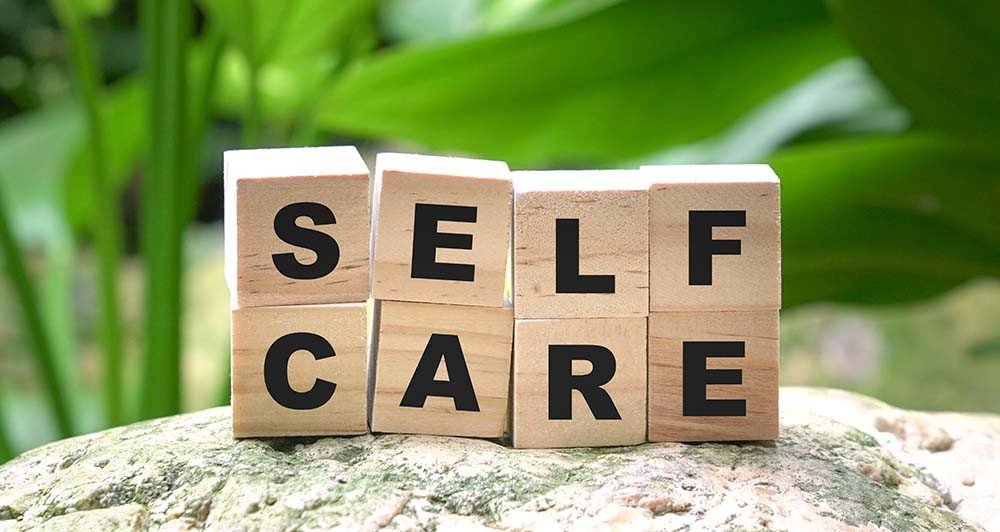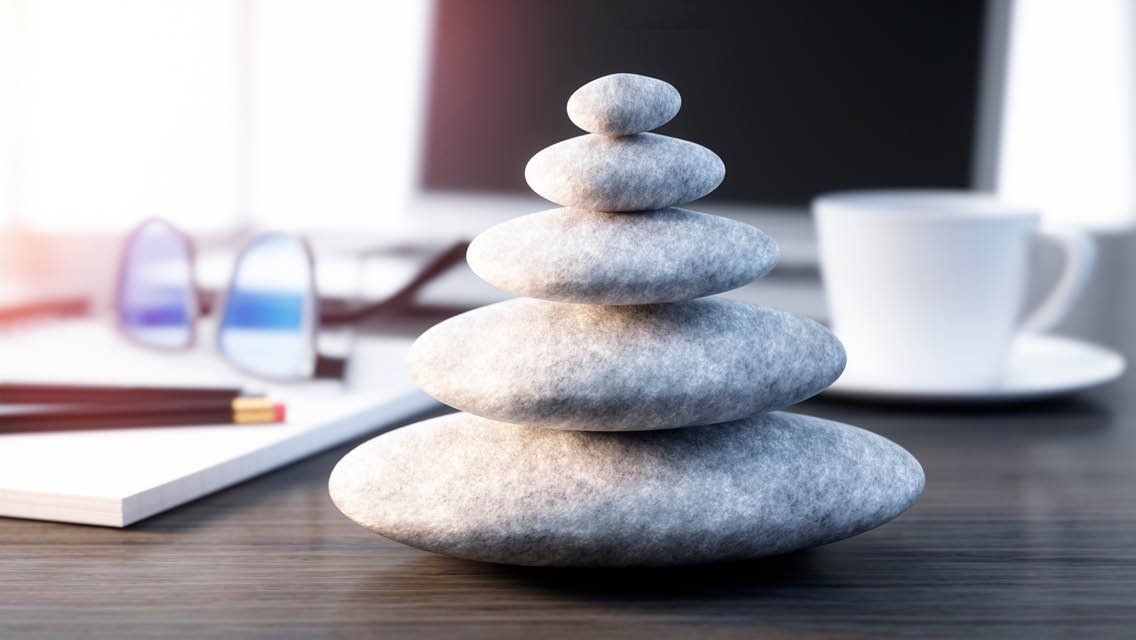Self-care for Stress
How mindful practices can help you create calm in the midst of chaos
How often do you feel stressed to the point of overwhelm? Overwhelm is that place beyond stress that really impacts our nervous system and how we respond in the world. It’s likely that you’ve been there at one time or another. I know I definitely have been.
Many people think that the stress is caused by factors outside themselves and their control, but that’s not true.
It’s important to understand that stress and overwhelm are feelings that result from your thoughts, not your circumstances. For example, you aren’t overwhelmed by work, your kids, or your daily to-do list, you’re overwhelmed by the thoughts you are having about those things. Your circumstances, thoughts, feelings and behaviours are all intertwined. Circumstances will result in thoughts that create feelings and cause you to behave in a certain way.
We know from the cognitive behaviour therapy model that your circumstances cause you to think thoughts. Your thoughts create emotions and feelings in your body. It’s your feelings that determine your behaviour, i.e., how you respond to situations.
If you want your feelings to be different, you need to work on changing your thoughts.
If you can change your thoughts, then you’ll feel less stress. Once the stress response is activated, though, it’s hard to reach the rational part of your mind that creates all those overwhelming thoughts.
Some common indicators that your stress is getting out of control include:
A feeling of fatigue or exhaustion
Difficulty sleeping despite being exhausted
Stomach problems
Aches and pains
Headaches
Rapid heart rate
Clenching your jaw
Feeling anxious or panic attacks
Tense muscles
So what can you do? That’s where mindful practices will help. If you can slow yourself down and take those extra breaths, you’ll move your stress response back down to a more manageable level, you’ll respond instead of react, and life will be calmer.
I believe any activity can become a mindful practice when you connect your breath, pay attention, and stay present.
When you do something with your full attention and focus on your breath, the practice incorporates all your mental, physical, emotional, and spiritual selves. For me, my mindful practices keep me centered, grounded and in optimum health. And even though some level of stress is inevitable in our busy lives, and even necessary, they usually keep me from becoming overwhelmed.
“Sometimes the most important thing in a whole day is the rest we take between two deep breaths.”
Etty Hillesum
Here are some mindful strategies to help you ease the stress:
Connect with your breath, increasing the length your inhales and exhales. Try 3 deep breaths. If you can’t breathe deeply because you’re so anxious, just take one breath at a time until you start to feel more in control.
If you can, close your eyes, connect with the breath, and then ask yourself, “What am I thinking that has caused this overwhelming feeling?” Notice the thoughts without attaching to them. Become curious.
Take a break from what you’re doing and connect with a friend if you can.
Stretch your body, engage in a yoga practice, and/or go for a walk.
Get out a notebook or journal and write your thoughts down.
Eat a healthy snack mindfully.
Here are more mindful ways to help you reduce stress and overwhelm throughout the day.
Become aware: When you start to incorporate mindful practices more regularly into your day, you’ll begin to check in with yourself more often to create awareness of when you are reaching your maximum stress level. An easy way to stay aware of what’s happening is to frequently check in with your breath. Take breaks often and pause for 3 deep breaths. Get up out of your chair and stretch your arms up over your head or shake it off. When you become more aware of your trigger points you won’t get to the tipping point as often.
Take it to your journal: When I connect with my breath and move daily, I feel _______________.Notice your thoughts: Remember, overwhelm is a feeling caused by your thoughts. Notice what you are thinking and ask yourself if your thoughts are serving you. Are they in your best interest? We have complete control over our thoughts and have the option to try out new thoughts that aren’t as stressful.
Try the 3 B’s: Instead of becoming overwhelmed by a long to-do list by thinking “I’ll never get this all done!”, try a strategy my mentor Martha Beck calls the 3 B’s - bag it, barter it, or better it. To bag it means to toss it out - does it really need to get done today? If so, then can you ask someone else to do it (barter it)? If you can’t toss it out or give it to someone else, then how can you make the task easier or more fun for yourself (better it)? Get creative!
Take it to your journal: What things on my to-do list can I let go of? How can I look at my to-do list with fresh eyes and a new perspective?Check in with your “why”? Why are you doing the things you do? Are they important to you? Do they point you in the right direction and move you forward, i.e., towards your ultimate goals and dreams? If your why is strong enough, then you may be able to ease your stress with these reminders. If you don’t have a strong enough why, it may be time to reassess what you’re doing.
Take it to your journal: What are my dreams and goals? How are my daily activities leading me towards those goals?
———
I’d love to hear from you so please send any comments or questions to me at sharon@sharonashtonmindfulyoga.com. Feel free to share this email with anyone else who may be interested.
Please check out The Journey Within podcast at:
What is stopping you from living your best life? Get out your journal and a pen and take the new quiz on my website to find out:
Are you interested in learning more about life change & mindset coaching from a mind/body perspective? Please email me at sharon@sharonashtonmindfulyoga.com for more information or to schedule a free introductory consultation to see if coaching is right for you. You can also visit my website coaching page.
"I felt at complete ease with Sharon from our first conversation. She has a wonderful, gentle but firm way that made me focus on my thoughts / feelings so I could remove / change to move forward with a completely different feeling to what felt like obstacles. It was great having regular coaching that gently kept me accountable to actioning and moving towards my goals. Sharon has vast experience in so many areas, I felt that makes her an amazing coach.”
— Michelle Carney, East Galway, Ireland
You can access your free Find Your Inner Coach Guide including a guided visualization and journal prompts here:
If you’re interested in more inspiration and community around positive mindset, slow mindful yoga, meditation and mindful writing practices, come join our private Facebook group here:







